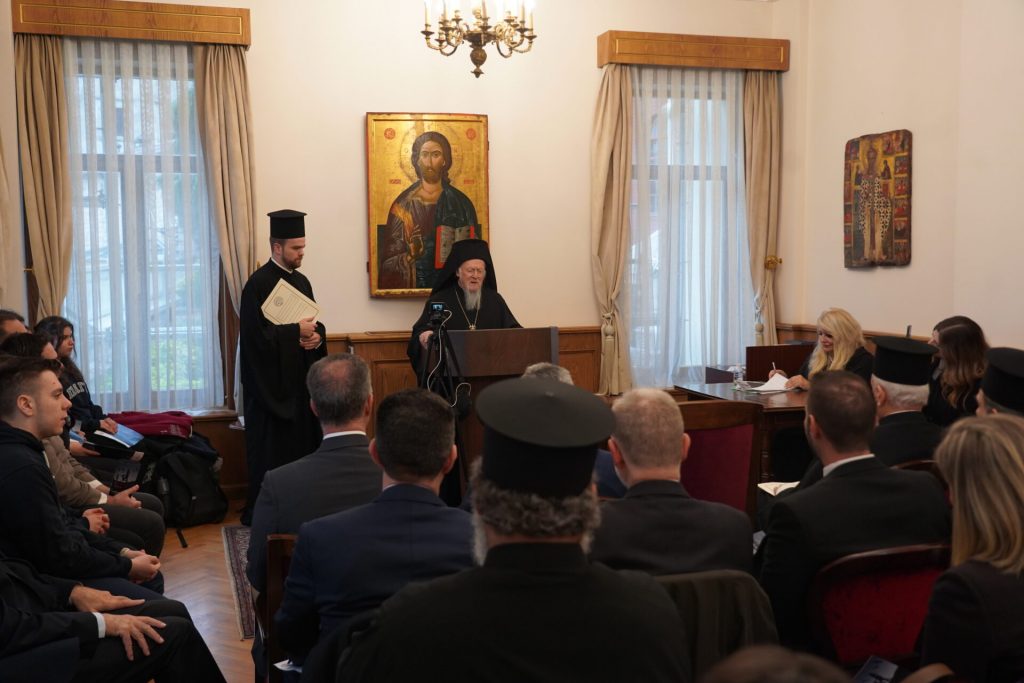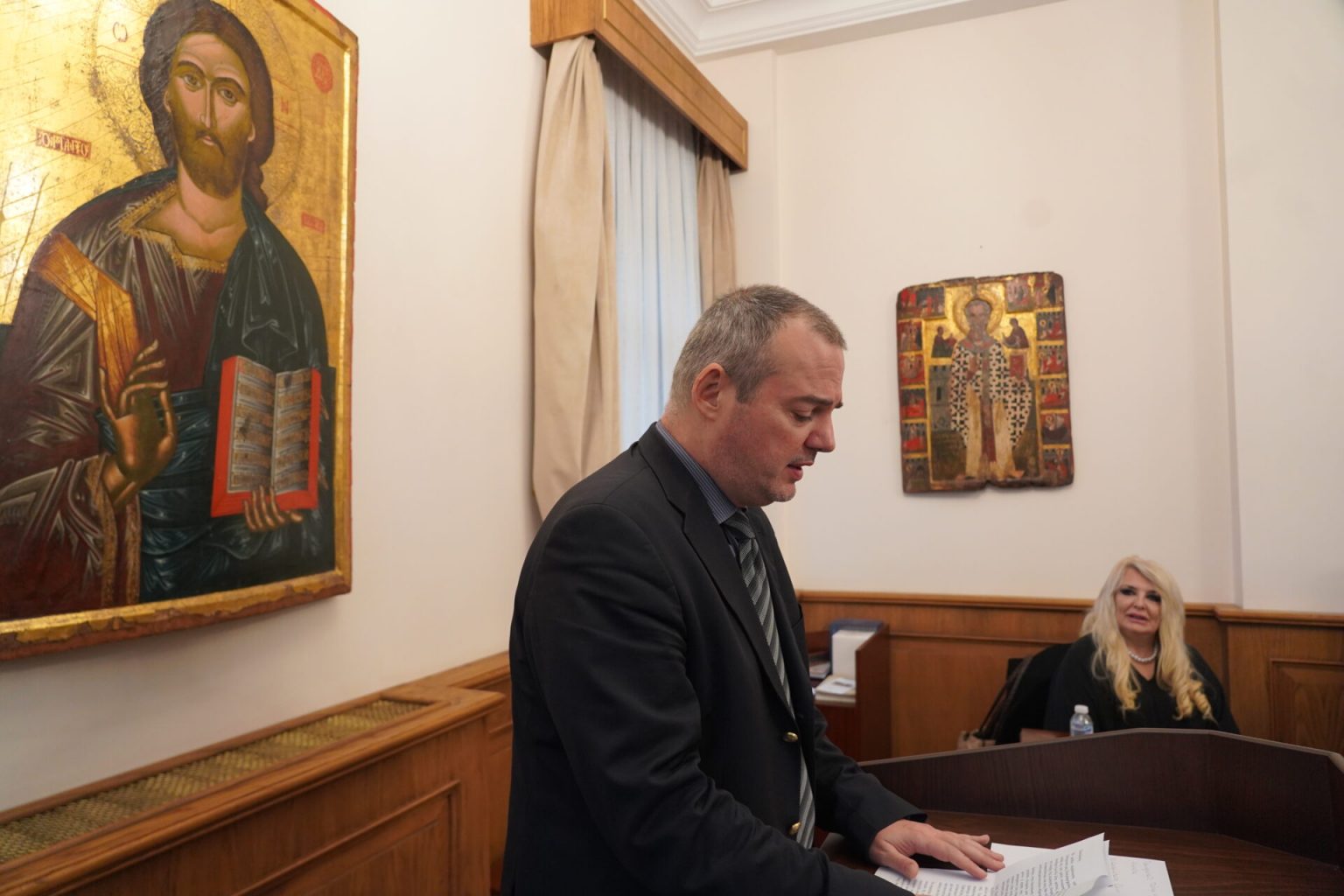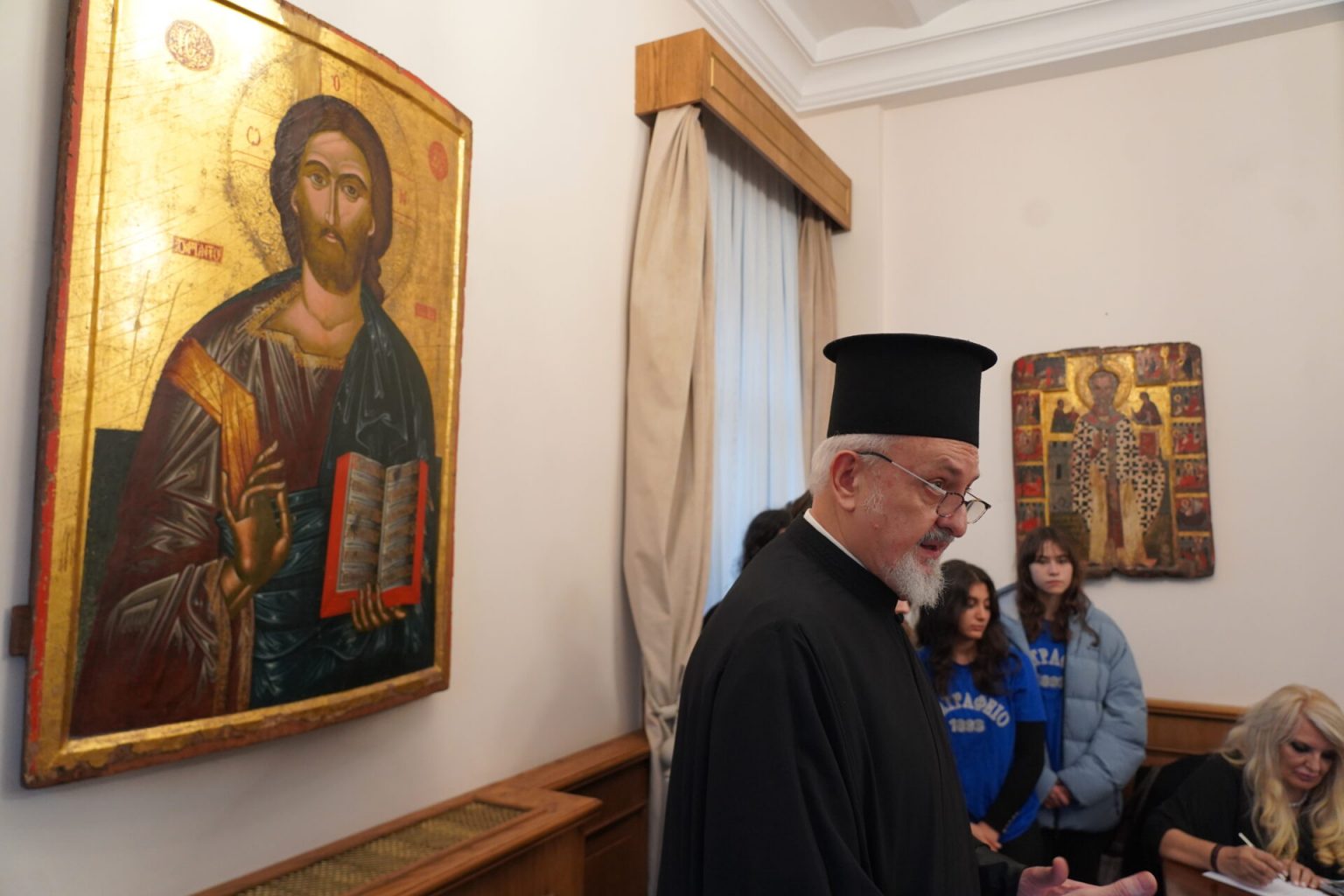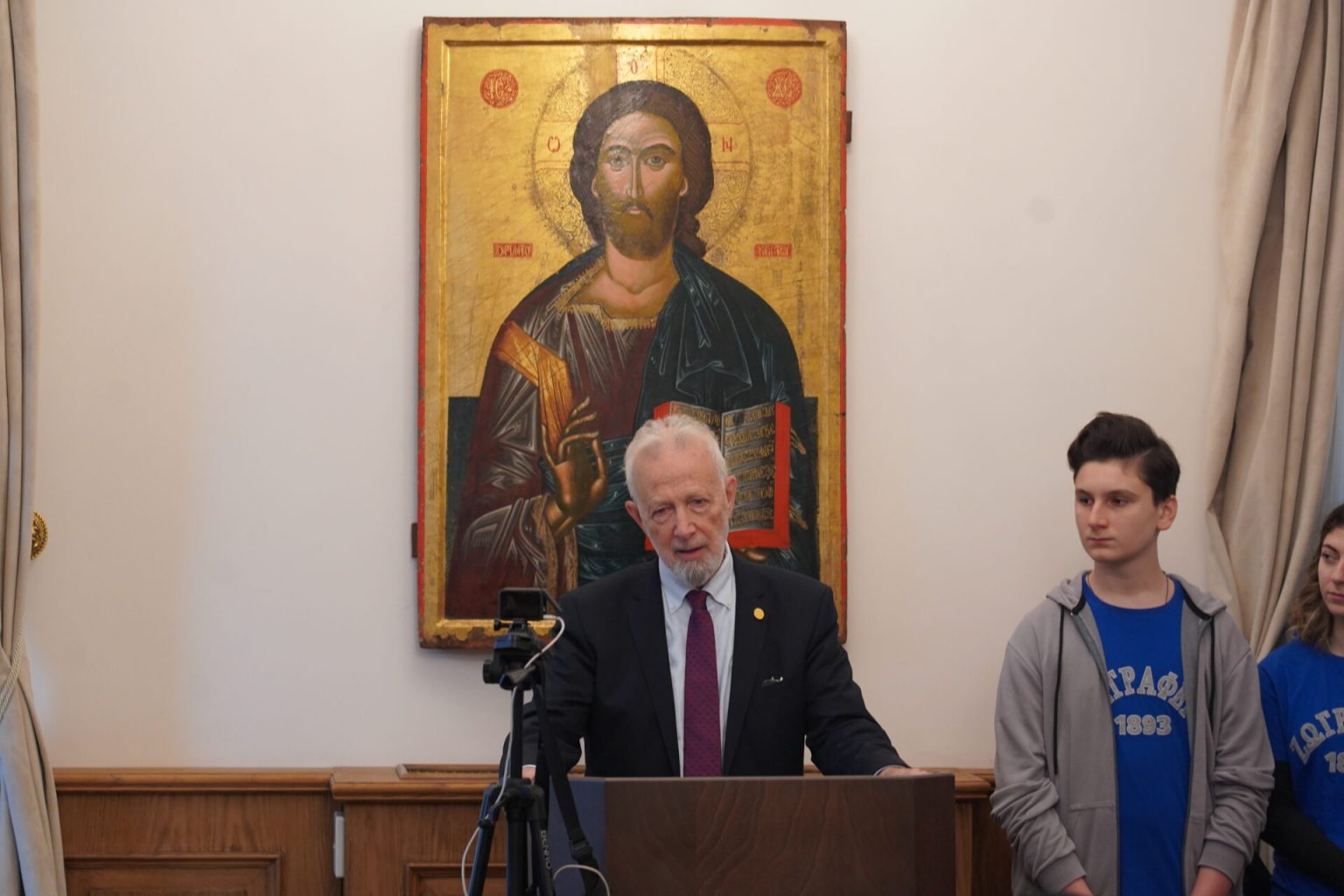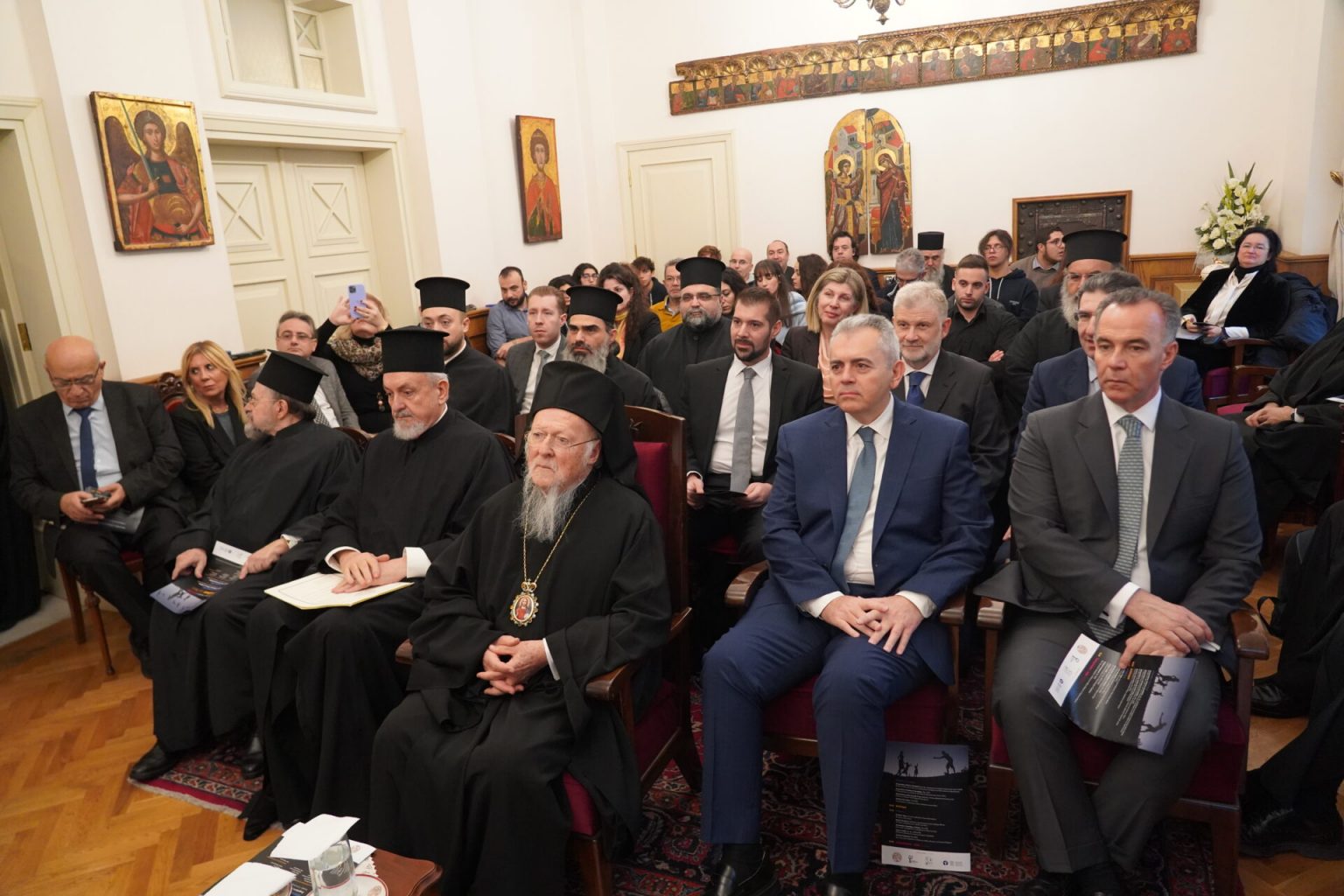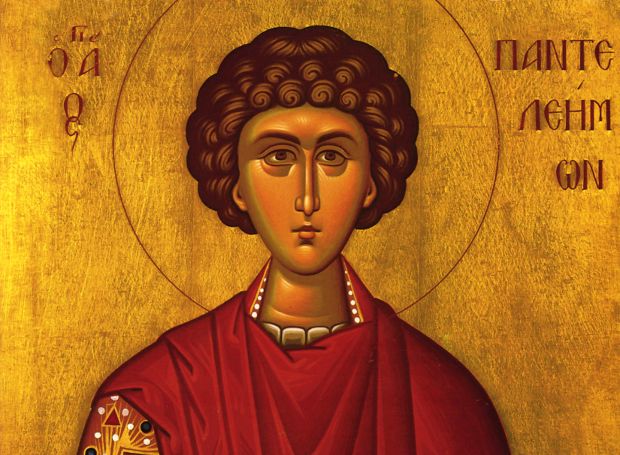Ecumenical Patriarch Bartholomew: Faith and science are beneficial forces for man


His All-Holiness Ecumenical Patriarch Bartholomew, on Friday, 8 December 2023, at the Phanar, declared the opening of the work of the 3rd International Conference on “Bioethics and Young People”, organised jointly by the Ecumenical Patriarchate with the National and Kapodistrian University of Athens, the Laboratory of Applied Philosophy of the University of Athens, the Greek Department of the Pasteur Institute and the MSc Animals: Ethics, Law, Welfare.
In his speech, the Ecumenical Patriarch noted that in the life of the Church, youth care has always been at the centre of its pastoral ministry, which is also true for our time, while, at another point, he pointed out: “It is written that the discussion on the modern bioethical dilemmas between the Church and Science reminds the Church of the confrontation with revolutions in the field of natural sciences, associated with the name of Newton and Darwin. We believe that such a perspective benefits neither the relations of faith and science nor the hypothesis of dealing with bioethical problems. Faith and science are beneficial forces for man. Their cooperation promises a future full of expectations. It is inconceivable and ineffective for faith to be suspicious of scientific knowledge and for science to link the future only to its progress.
Our life may be prolonged, but it does not automatically acquire a deeper meaning. We may know what death is biologically, but this knowledge does not bridge the “existential contradiction” between life and death. Human aggression and its causes may have been studied scientifically in-depth, but this did not solve the problem of evil, which is rooted in human freedom. There is not only measurable reality. There is the “dimension of the depth of things”, the mystery, the meaning, the beauty. The “miracles” of science did not eliminate the questions of our freedom.
We are sure that religions will have an important role to play in dealing with existential dilemmas. Religions are associated with the brightest aspects of our existence, charity and ministry, religious art, the hope of eternity, respect for the human person, and deep anthropological knowledge. It is a fact that religions have fueled, and are doing so today, division, fundamentalism, and violence in the name of God. But this is not their essence, but an expression of their alienation. Therefore, the dilemma for humanity cannot be “religion or not”, but “what kind of religion?”. The aim is for religion to contribute to the elevation of man, to the emergence of his eternal destiny, and to peace and reconciliation.
Returning to the Church and its pastoral care for the new generation, we note that this is still today a call and a proposal to the new generation to participate in ecclesiastical life, where they will find support and the prospect of eternity. In this context, the treatment of bioethical dilemmas is also included. The acceptability of the faithful for pastoral support in borderline situations is related to their overall relationship with the life of the Church and their active participation in it. The pastoral care of the Church is always addressed, with sensitivity and distinction, to the specific person, neighbour, brother, and never to impersonal persons. There is no general, abstract, and impersonal pastoral care.”
Previously, greetings were addressed by Professor Mr. Evangelos Protopapadakis, Director of the Laboratory of Applied Philosophy at the National and Kapodistrian University of Athens (NKUA), and of the Interdisciplinary Postgraduate Program (MSc) Animals: Ethics, Law, Welfare. Within the framework of the Conference, speeches were delivered, among others, by His Eminence Elder Metropolitan Emmanuel of Chalcedon, Archon Didaskalos of the Genus Mr. Konstantinos Delikostantis, Honorary Professor at NKUA, and Mr. Nikolaos-Georgios Papachristou, Director of the Press and Communications Office of the Ecumenical Patriarchate.
The inaugural session was attended by His Eminence Metropolitan Eirinaios of Myriophytos and Peristasis, His Grace Bishop Paisios of Xanthoupolis, His Excellency Ambassador Mr. Konstantinos Koutras, Consul General of Greece in Constantinople, Dr. Maximos Charakopoulos, Member of the Hellenic Parliament and Secretary General of the Interparliamentary Assembly on Orthodoxy, University Professors, and many more.
Photos: Ecumenical Patriarchate / Nikolaos-Georgios Papachristou
Source: fosfanariou.gr
